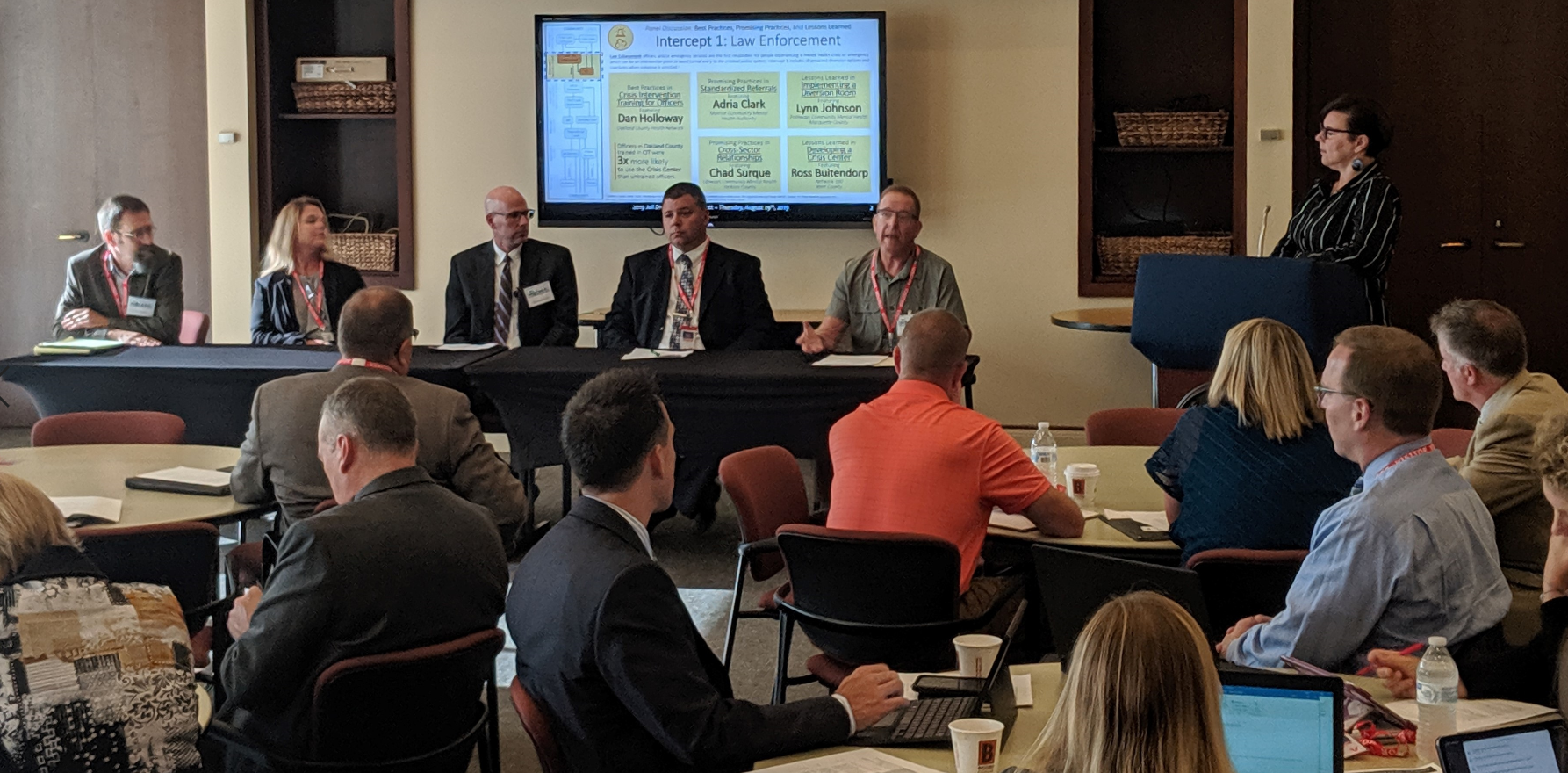Michigan Mental Health Diversion Council Pilot Summit showcases promising jail diversion practices from across Michigan
On Thursday, August 29, 2019, the Michigan Mental Health Diversion Council and State Diversion Administrator, Steven Mays, hosted the fifth annual Jail Diversion Pilot Summit, showcasing promising jail diversion practices and lessons learned from fourteen communities across the state.
Since 2013, ten counties in Michigan have received pilot program funding from the Mental Health Diversion Council to initiate innovative ways to divert people with mental illness and co-occurring disorders from incarceration. These ten communities were joined by four Stepping Up counties in a new summit format, which used the Sequential Intercept Model as the framework to discuss opportunities for diversion in the criminal/legal system.

Throughout the day, Liz Tillander, Deputy Director of the Wayne State University (WSU) School of Social Work Center for Behavioral Health and Justice (CBHJ), facilitated panel discussions with community leaders focused on best practices, promising practices, and lessons learned in diversion across each of the six intercepts: pre-arrest community resources, law enforcement, initial detention/initial court hearings, jails/courts, reentry, and community corrections. Through an interactive panel format, stakeholders were able to delve deeper into successes and challenges around diversion initiatives and recommendations for expanding diversion efforts across the state.
Over lunch, WSU School of Social Work Dean Sheryl Kubiak, Associate Professor and CBHJ Data Director Erin Comartin and CBHJ consultant Grant Victor presented the latest evaluation data from the ten jail diversion sites, which indicated that communities with continued dialogue and collaboration have seen the largest decreases in rates of serious mental illness, rural communities need more resources and continued innovation to decrease rates of serious mental illness, and individuals with serious mental illness are much more likely to select opioids as their drug of choice and to be concerned about withdrawal during a jail stay.

The summit concluded with a visit from Lieutenant Governor Garlin Gilchrist II, who stated that criminal justice reform is a priority of Governor Gretchen Whitmer's administration. Gilchrist shared with the group the goals of the Michigan Joint Task Force on Jail and Pretrial Incarceration, and engaged in a dialogue with summit participants about strategies and barriers to building a criminal/legal system that meets the needs of those with mental health and/or substance use concerns.
View the summit presentation on the CBHJ website.
About the Center for Behavioral Health and Justice: The Center for Behavioral Health and Justice and Wayne State University's School of Social Work envisions communities in which research, data, and best practices are used by multiple stakeholders to enhance the optimal well-being of individuals with mental illness and/or substance use disorders who come into contact with the criminal/legal system. Learn more.
About the Michigan Mental Health Diversion Council: Created by Executive Order 2013-7, the Mental Health Diversion Council was created in the Michigan Department of Community Health to advise and assist in the implantation of the Diversion Action Plan and provide recommendations for statutory, contractual or procedural changes to improve diversion. The Council is charged with reducing the number of people with mental illness or intellectual or developmental disabilities (including comorbid substance addiction) from entering the corrections system, while maintaining public safety. Learn more.
About the Stepping Up Initiative: Stepping Up is a national initiative to reduce the number of people with mental illnesses in jails and is the result of a collaboration between the National Association of Counties, The Council of State Governments Justice Center and the American Psychiatric Association Foundation. Learn more.